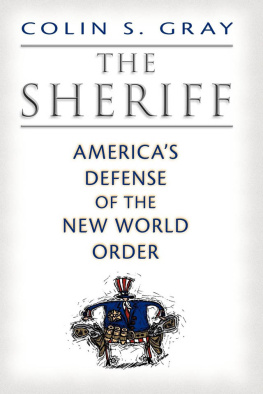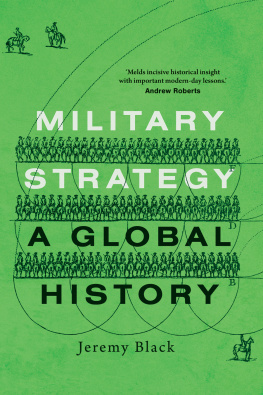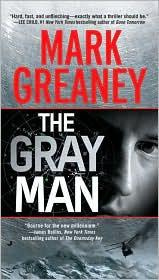
Table of Contents
List of Tables
List of Illustrations
Guide
Pages
Copyright page
Copyright Colin S. Gray 2015
The right of Colin S. Gray to be identified as Author of this Work has been asserted in accordance with the UK Copyright, Designs and Patents Act 1988.
First published in 2015 by Polity Press
Polity Press
65 Bridge Street
Cambridge CB2 1UR, UK
Polity Press
350 Main Street
Malden, MA 02148, USA
All rights reserved. Except for the quotation of short passages for the purpose of criticism and review, no part of this publication may be reproduced, stored in a retrieval system, or transmitted, in any form or by any means, electronic, mechanical, photocopying, recording or otherwise, without the prior permission of the publisher.
ISBN-13: 978-0-7456-8793-3
ISBN-13: 978-0-7456-8794-0 (pb)
A catalogue record for this book is available from the British Library.
Library of Congress Cataloging-in-Publication Data
Gray, Colin S.
The future of strategy / Colin Gray.
pages cm
Includes bibliographical references and index.
ISBN 978-0-7456-8793-3 (hardback) ISBN 978-0-7456-8794-0 (paperback) 1. Strategy. 2. War (Philosophy) 3. Nuclear warfarePrevention. 4. Geopolitics. I. Title.
U162.G692 2015
355.02dc23
2015003035
Typeset in 11 on 13 pt Sabon
by Toppan Best-set Premedia Limited
Printed and bound in the UK by CPI Group (UK) Ltd, Croydon
The publisher has used its best endeavours to ensure that the URLs for external websites referred to in this book are correct and active at the time of going to press. However, the publisher has no responsibility for the websites and can make no guarantee that a site will remain live or that the content is or will remain appropriate.
Every effort has been made to trace all copyright holders, but if any have been inadvertently overlooked the publisher will be pleased to include any necessary credits in any subsequent reprint or edition.
For further information on Polity, visit our website: politybooks.com
Dedication
To the respected memory of
Aleksandr A. Svechin (18781938) the Russian Clausewitz
Rules are inappropriate in strategy.
Svechin, Strategy , 2nd edn (1927; Minneapolis, MIN: East View Information Services, 1992), 64
Preface
I am most grateful to my editor and her team at Polity Press, Dr Louise Knight, who persisted in challenging me to write relatively briefly and intelligibly. Relative brevity I did achieve, but final judgement as to intelligibility I must defer to readers. I confess that I was somewhat surprised by my own argument, and conclusions, in this book. Specifically, although I have always been sure that strategy had a secure future in our history, I had not realized, prior to writing this text, just how overwhelmingly strong the argument for strategy in our human future has to be. Readers will discover that, although my subject here is forbiddingly diverse in historical detail, the true essentials of my argument about the future of strategy are actually quite simple and intellectually cohesive. I find that our human nature demands that we organize for security, which means that we require political process and need strategy. The logic is tight and the historical evidence in its support is overwhelming. Equally, the need for strategy is certain to be as strong in the future as it has been in the past and is in the present. The argument is clear and utterly compelling, once one has worked it out. I can thank Polity for obliging me to understand and explain the future of my subject.
In addition to the staff at Polity, I must thank my professional manuscript preparer, Barbara Watts, and my wife and daughter, Valerie and Tonia, for making it possible for me to complete this challenging project.
Colin S. Gray
Wokingham
Introduction
I am a strategist. For fifty years I have spoken, written and sought to advise governments about strategy. Because this is a relatively short book on what can be a large and often apparently diverse subject, it is necessary to start by bringing order to what otherwise can appear unduly chaotic. The concept of chaos, meaning disorder and confusion, is important for our subject. Chaos always is either actively present in strategic history, or, at the least, ready in the wings threatening to become dominant in a current context. The discipline of strategy substantially is about attempts to prevent political urges from resulting in threats and violence that are not highly relevant to the motives for action. The core challenge of strategy is the attempt to control action so that it has the political effect desired. Indeed, strategy is all about the consequences of action that is tactical behaviour.
The beginning of wisdom for an approach to the understanding of strategy should be recognition of the sheer difficulty of the enterprise. The challenges to the strategist are formidable wherever one looks. Scholars' text books are almost bound to simplify in the interests of clarity, but the attempted practice of strategy meets resistance that often was unanticipated, and finds itself committed largely to the prevention of chaos. However, although chaos rules more often in strategic history than one might like, fortunately it is possible to identify a handful of ideas that can be helpful in making an effort to make this vitally important subject more intelligible.
General Theory
First and foremost, the entire, hugely diverse, strategic history of Mankind has been commanded fundamentally by the dicta of a general theory of strategy that applies to all times, places and circumstances. This general theory does what such a theory must, it explains the nature and basic functioning of its subject, without privilege or prejudice to particular issues. My personal preference for a general theory of strategy contains twenty-three items at present (see table ). A secure grasp of this theory serves as education that should enable practising strategists to cope better with the specific challenges they face. I developed this version of theory in the course of my professional career as the result of a pressing need to understand how best to apply military force of many kinds in action or as threats. I have found this general theory suitable as an important aid for coping with challenges regarding arms control, nuclear weapons, landpower, seapower, airpower, cyber power, special operations and geopolitics. This theory, or variants of it, has to be the essential basis for the understanding of all strategic topics.
Politics
As the general theory brings order to all aspects of the broad subject of strategy, so too does explicit recognition of the authority of politics. Strategy is not politics, but it is always about politics. No matter the particular technical and cultural detail, strategy has to be ruled by superior political process. This is not discretionary. Violence, organized or other, always and everywhere has some political meaning. The outcome of warfare often is not what many people expected, but that does not negate the merit in this second theme. Journalists and scholars are apt to forget politics in the excitement or perceived impressiveness of policy and policymaking. But the making of policy is controlled by politics. Moreover, the dignity within which policy is wrapped can serve unhelpfully to bury from view appreciation of the politics that rule policymaking process.
Next page









